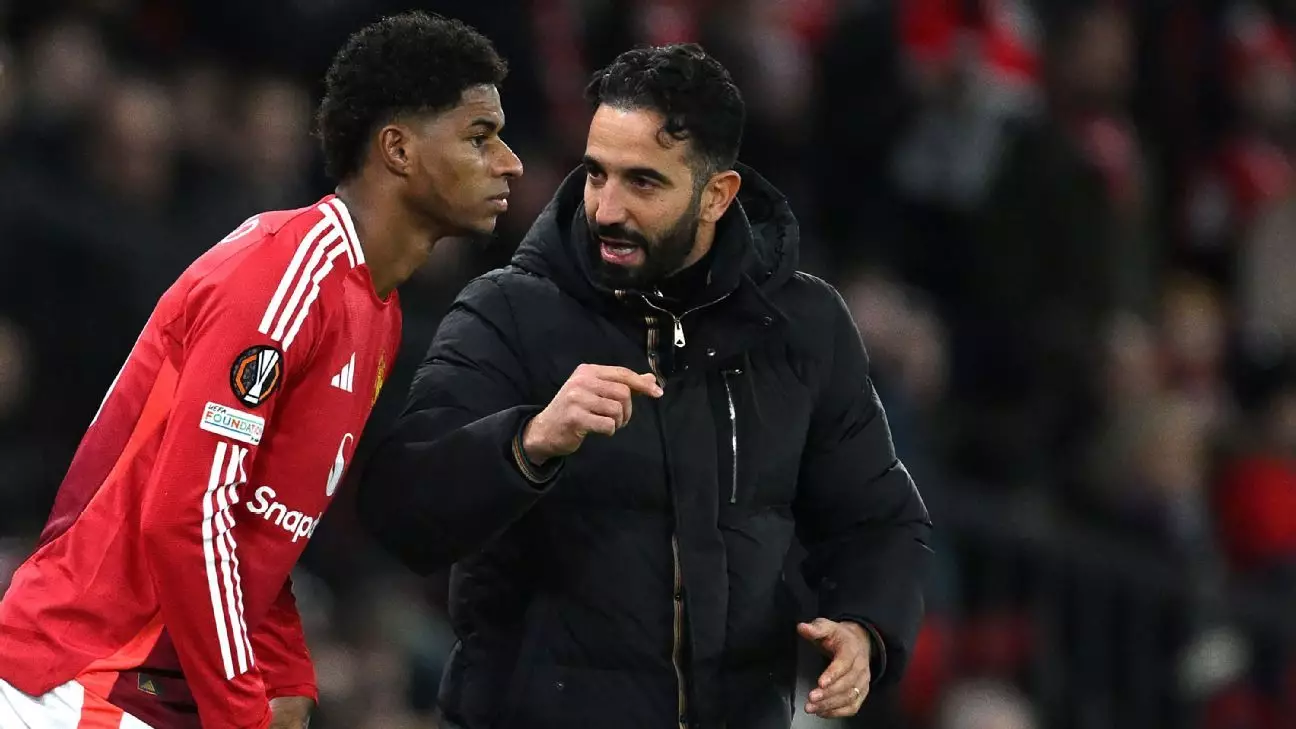Ruben Amorim finds himself grappling with a significant predicament at Manchester United, particularly as the January transfer window looms. Following a disheartening defeat against Newcastle—marking United’s fourth consecutive loss across all competitions—his side currently occupies a precarious 14th place in the Premier League, merely seven points above the relegation zone. Such troubling performances raise questions about the future direction of the club and the tactics employed by Amorim.
Despite the pressing need for reinforcements in the squad, Amorim has candidly expressed his belief that financial constraints will severely limit any potential movements in the transfer market. “We don’t have that possibility in January,” Amorim stated, indicating a stark awareness of the club’s financial reality. This revelation underscores the challenges he faces in the transfer window, notably the absence of significant investment that would allow for a rapid transformation of the team’s structure. With a dearth of players adept at executing his preferred 3-4-3 formation, the Portuguese coach is left with the unenviable task of pushing forward with a system that may not fully exploit the capabilities of his current squad.
Adapting the Tactics
Amorim confronts ongoing speculation regarding whether he should adjust his tactical approach to better accommodate the existing players, many of whom have become accustomed to a different style under his predecessor Erik ten Hag. However, the 39-year-old firm in his resolve, believes that altering his system would potentially exacerbate the team’s struggles. “If I change all the time it is going to be even worse,” he remarked, emphasizing the need for consistency in his strategic vision. For a coach who has consistently employed the 3-4-3 setup throughout his managerial career, Amorim’s commitment to his philosophy is evident despite the mounting pressure for results.
As the team prepares for a challenging match against league leaders Liverpool, the urgency for improvement is palpable. Amorim’s focus remains not only on disseminating his ideologies but also on gaining the trust of his players. He understands the complexity of transitioning a group of athletes conditioned to a different playing style into a fresh tactical framework, which could potentially suffocate their development. Despite the critiques surrounding his methods, he adamantly maintains that reverting to a more traditional formation like the 4-3-3, associated with Ten Hag’s tenure, may not yield the desired results. “They were losing in the system they were bought for,” Amorim pointedly noted, highlighting the futility of simply switching systems without addressing the underlying structural issues.
Ultimately, Amorim’s position remains precarious and undoubtedly challenging. The impending January transfer window presents an opportunity, albeit a limited one, for adjustments to be made. However, the real test will be his ability to cultivate a sense of resilience within his squad while remaining faithful to a system that has brought him success in the past. Only time will tell if this steadfastness can steer Manchester United away from the brink and towards a more promising future.
